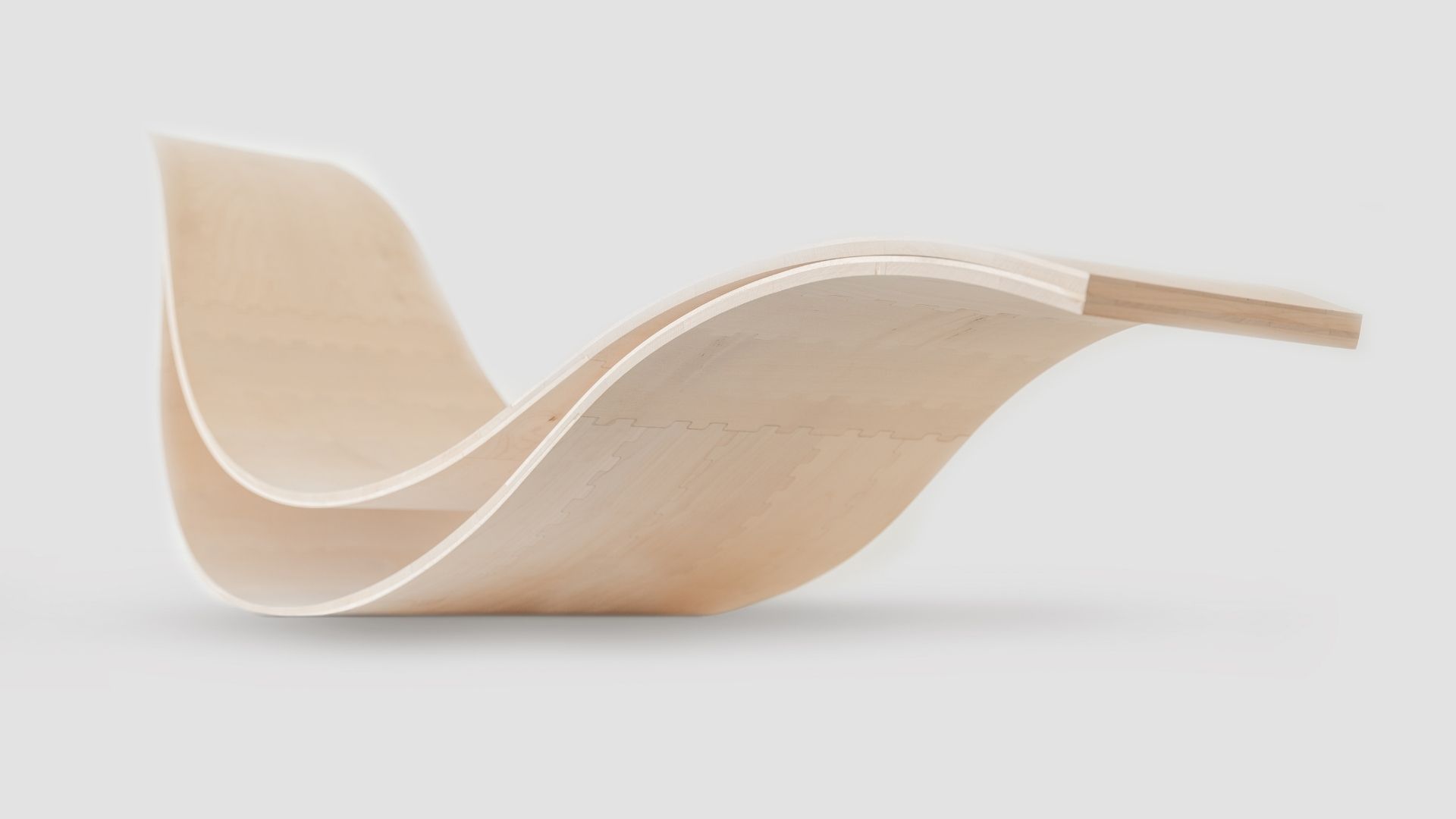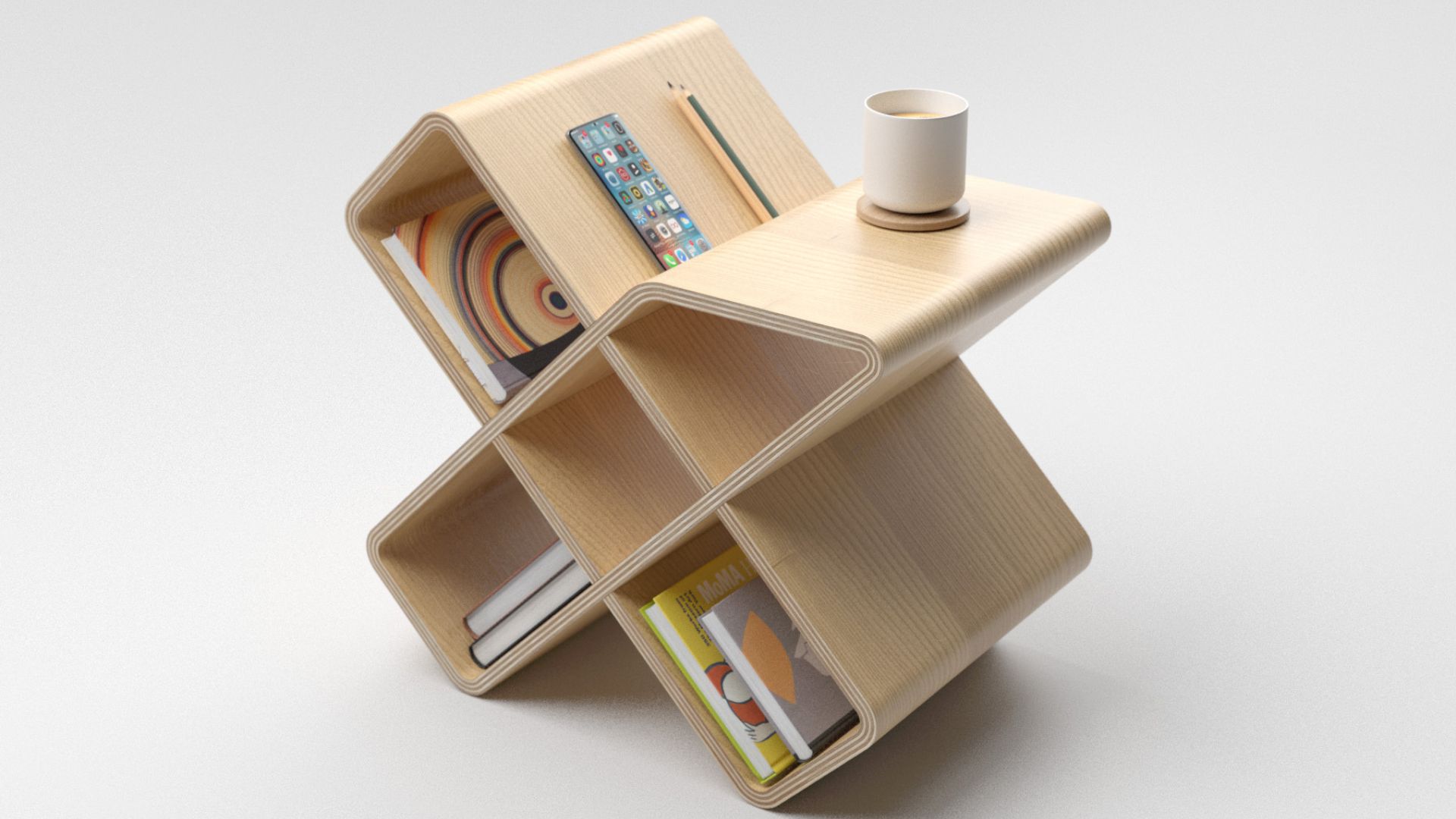Elli Design’s Zero collection stands for sustainability at Milan Design Week
The modular furniture collection represents zero waste in production and Zero as a reference to the circular movement of the robot that 3D-prints each striking piece.

Fresh out of the pandemic, this year’s Milan Design Week revealed an enlightened approach from furniture designers ready to tackle the issues surrounding sustainability.
Among them, Italian Furniture brand Elli Design exhibited new and exciting ways of manufacturing modular furniture with its Zero collection in a bid to promote the circular economy and the company’s dedication to green practices.
Elli Design is an innovative startup created by Italian designer and artist Alessio Elli, who has found his own unique and contemporary style in the digital printing technique.
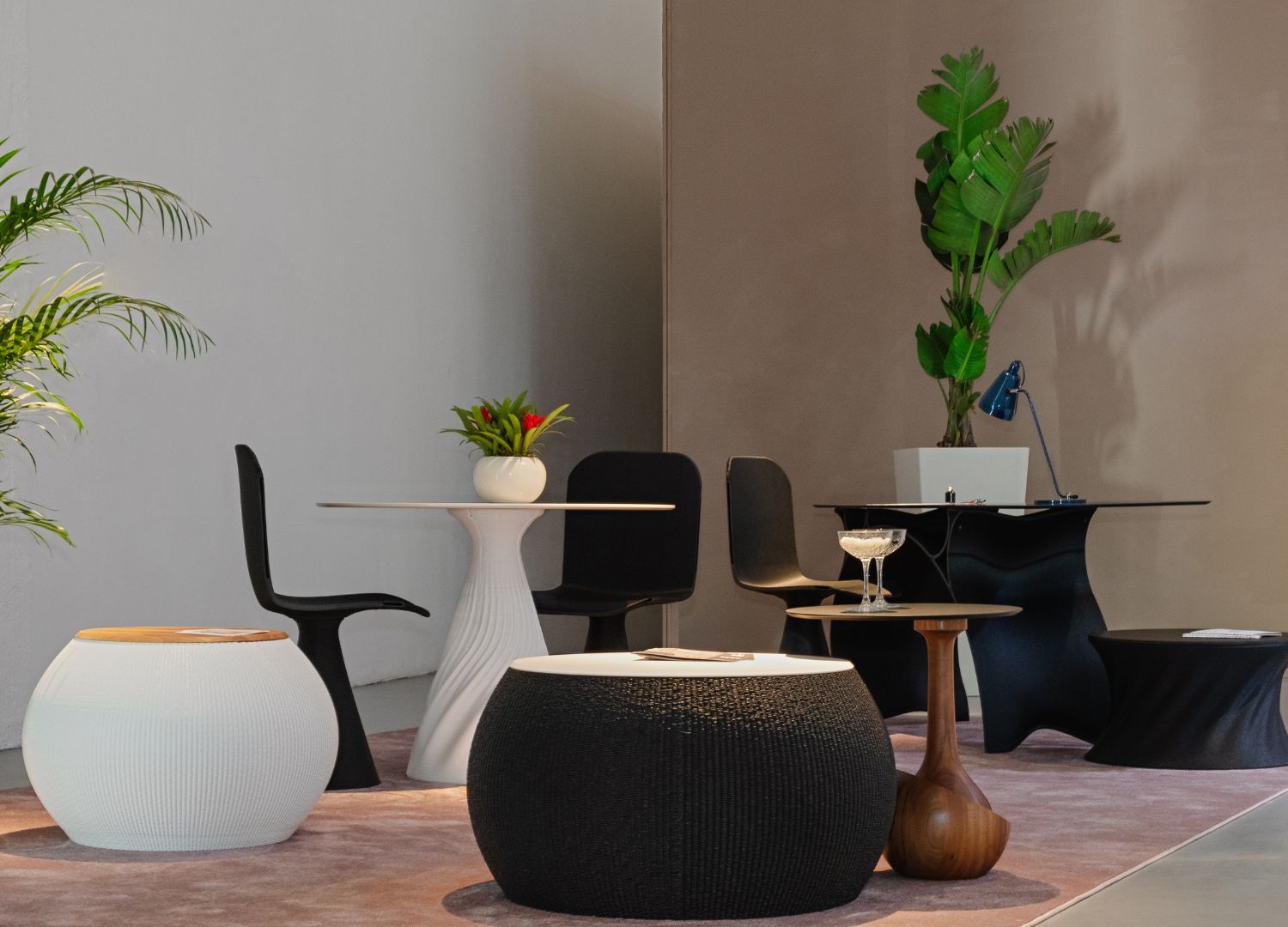
At the world’s most important design fair, the company rivalled the innovation of its competitors with Zero, a collection of oval-shaped, 3D-printed components that serve multiple functions depending on the shape.
“We worked on an object with friendly, soft shapes and textures to show how beautiful and truly sustainable products can be obtained,” explains Elli Design founder Allesio Elli.
“These simple shapes are in response to the social and emotional complexity of the period we are living. They create an opportunity to fully understand the production and environmental values and issues that are the soul of the Zero collection.”
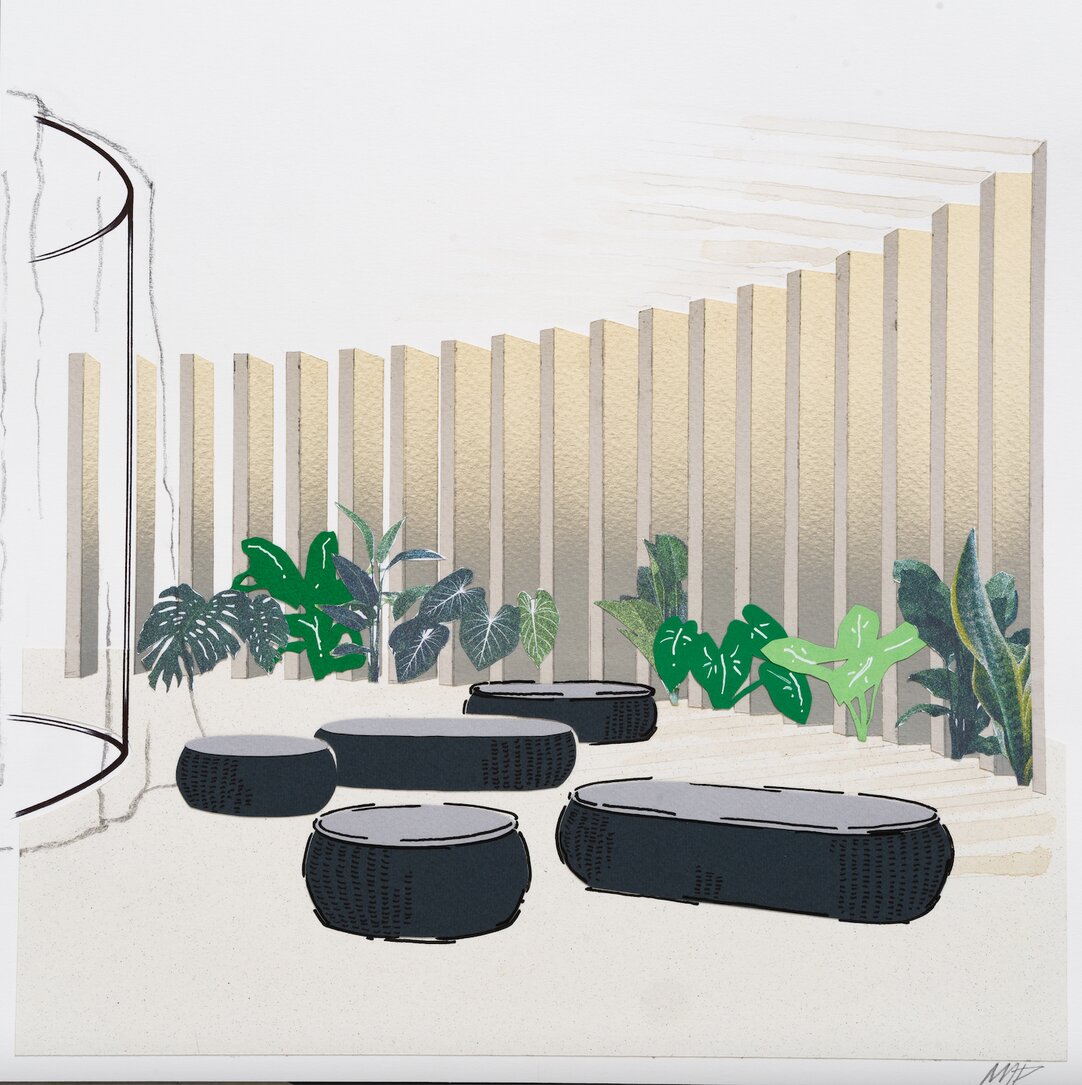
Zero sweeps without limits between complex and futuristic shapes that wouldn’t look out of place in any context—private, residential or hospitality.
They can be combined in different configurations to create setups in lounges, holding areas and office spaces to striking effect.
At present, it is available in two colour ways including a lighter option made from a glossy white PLA that comes with a natural oak table top, and a darker variation made from recycled plastic with a white Fenix table top.
With a decidedly approach, Zero collection is made up of only two recycled materials for the structures and assembled without the use of glue.
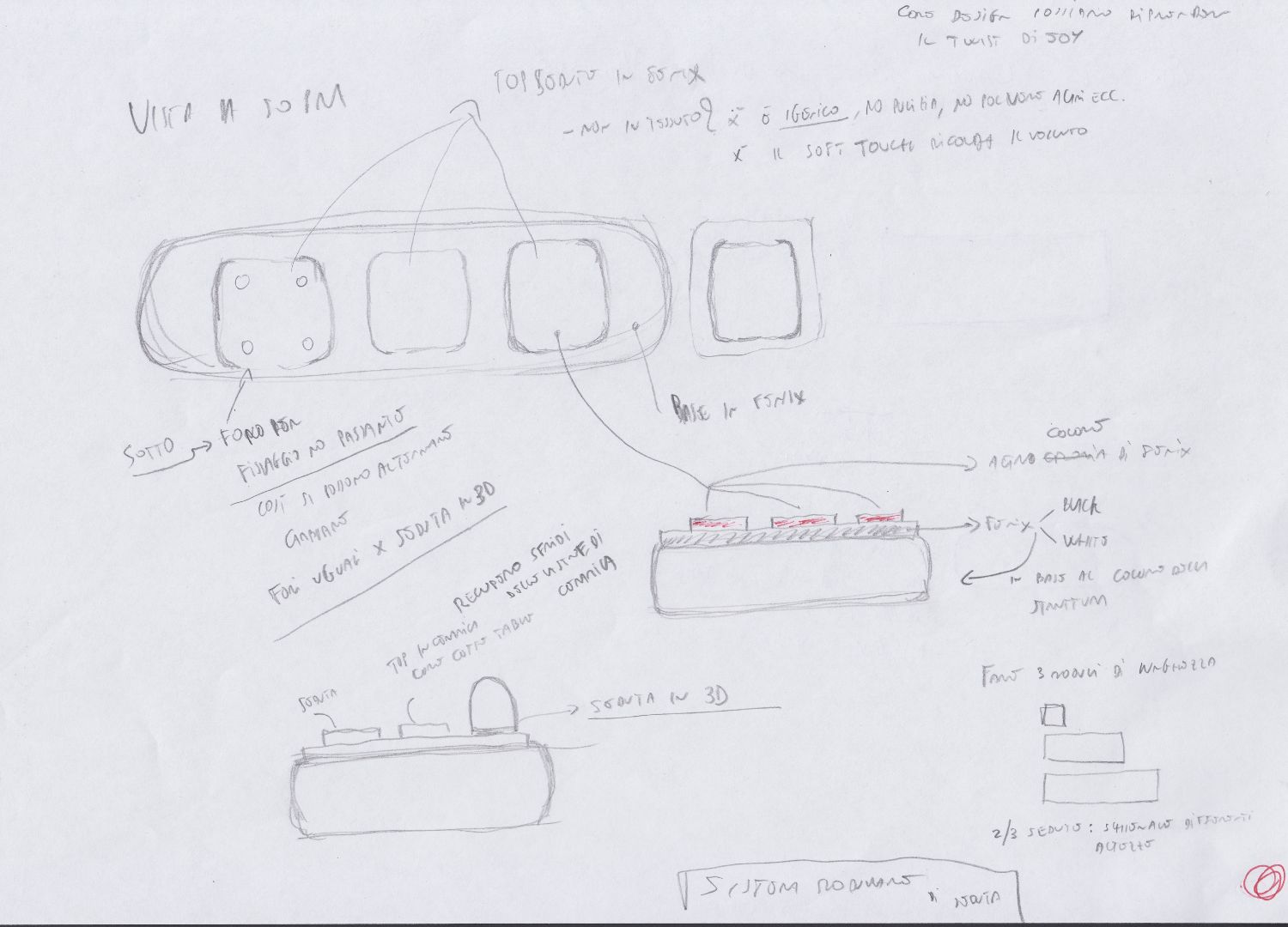
They are easily recoverable, reusable, and recyclable at the end of their life, which unfortunately does not happen with many similar products on the market today, that are at least composed of 5 or 6 materials which can be almost impossible to recycle.
“The value of an object today is no longer represented by the quality of the materials used alone, but above all by the lowest environmental impact that can be achieved to produce it and during its entire life cycle,” adds Elli.
The essence of Zero is defined by Elli’s pushing of the additive manufacturing process, which the designer has used to transform his discipline.
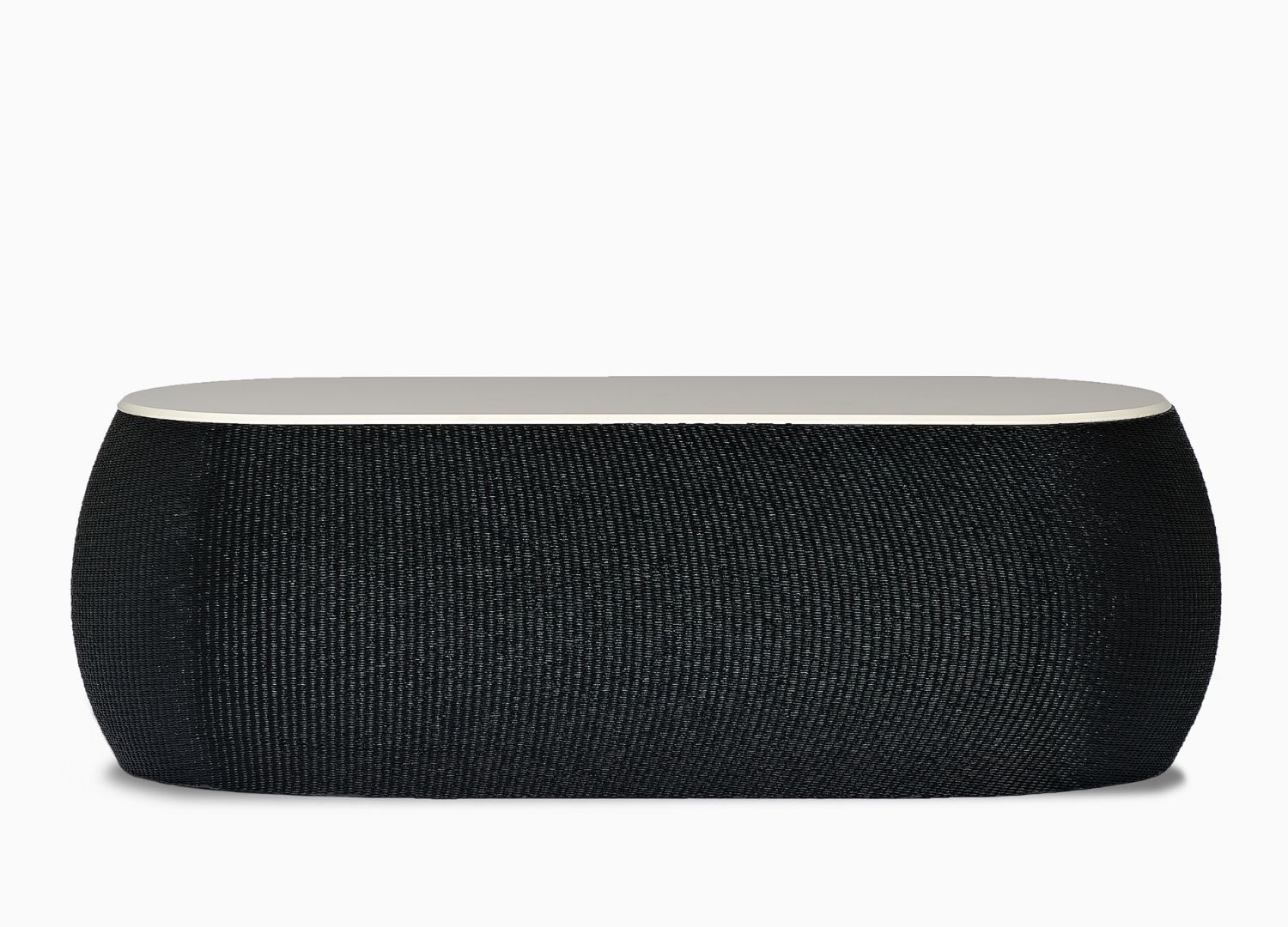
Integral to the brand’s success is a collaboration with Italian manufacturing company Caracol, which uses large robots, which print the final pieces of the collection.
“It is said that the limit of additive manufacturing is the imagination, so it follows that for us creatives the most difficult part lies in the product design phase,” says Elli.
“We face a really white sheet and on this we have to give shape to the function, to the beauty, to the distinctive and characterising elements of an object.”
“The most exciting part is certainly when the robot with its dance reaches about halfway through the product; from the void / nothing you see that the idea really takes shape, size, volume, and solidity, as well as the thought and imagined plot is realised, here lies the magic: the imagination becomes reality.”
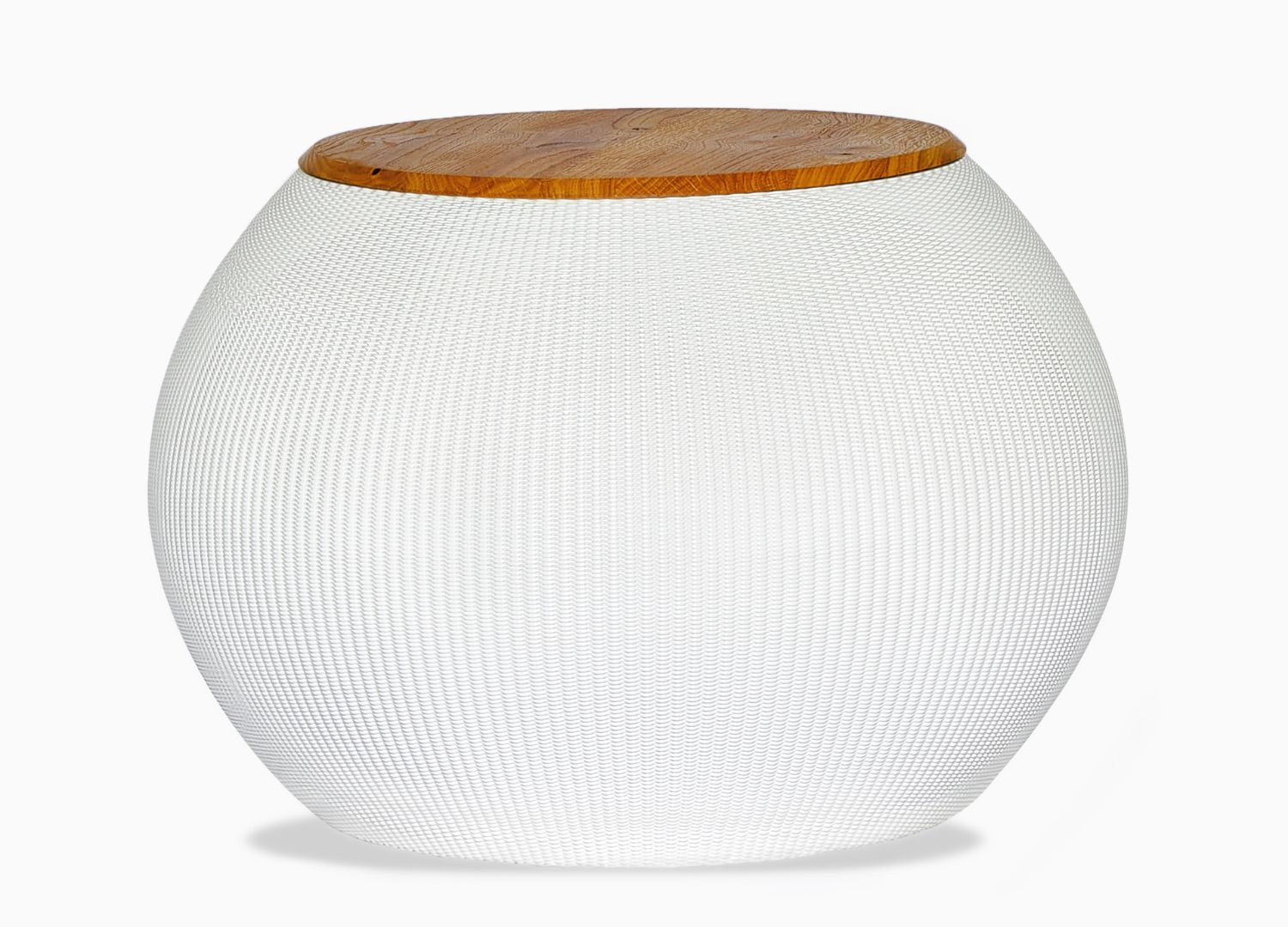
Zero intends to represent a concept of freedom, leaving people free to interpret it and place it with infinite possibilities, a feat that proved particularly popular during Milan Design Week in June.
In particular, the collection was praised for its innovative details, like the 45 ° yarn that Elli’s design team overturned to give continuity with the lines of the structures.
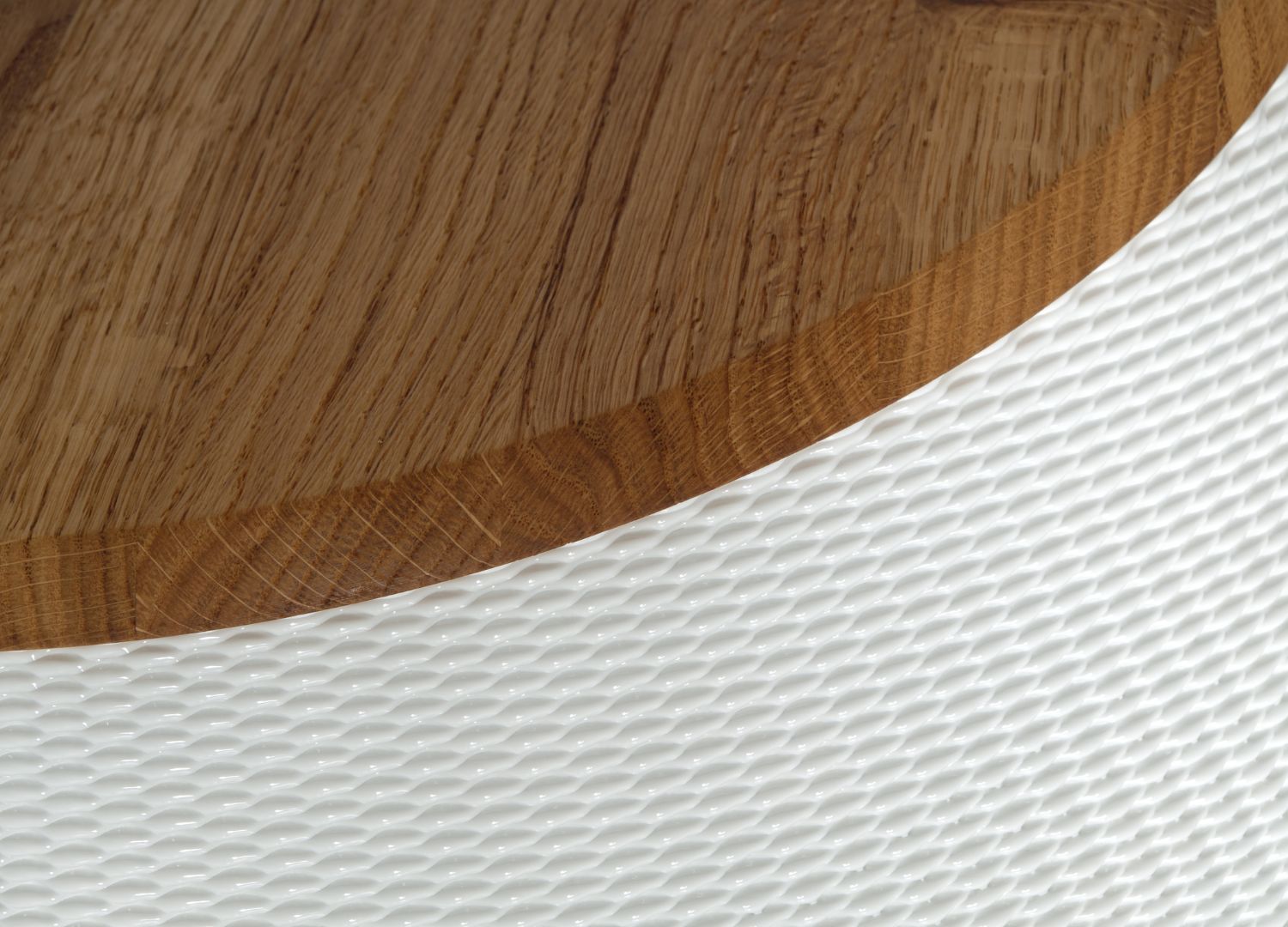
The event proved to be a success for Elli, who took the opportunity to garner feedback from professors, students and additive manufacturing experts from across the globe:
“Visitors from around the world also loved the beauty and sustainability of Zero, the quality of the print, the weaves obtained and the perfect combination of surface materials,” explains Elli.
“During Milan Design Week, we were able to understand that the path we have taken is the correct one,” says Elli.
“Despite the market not being completely ready to take a risk on a model like ours, the feedback we received when it comes to our research and development validated the product.”
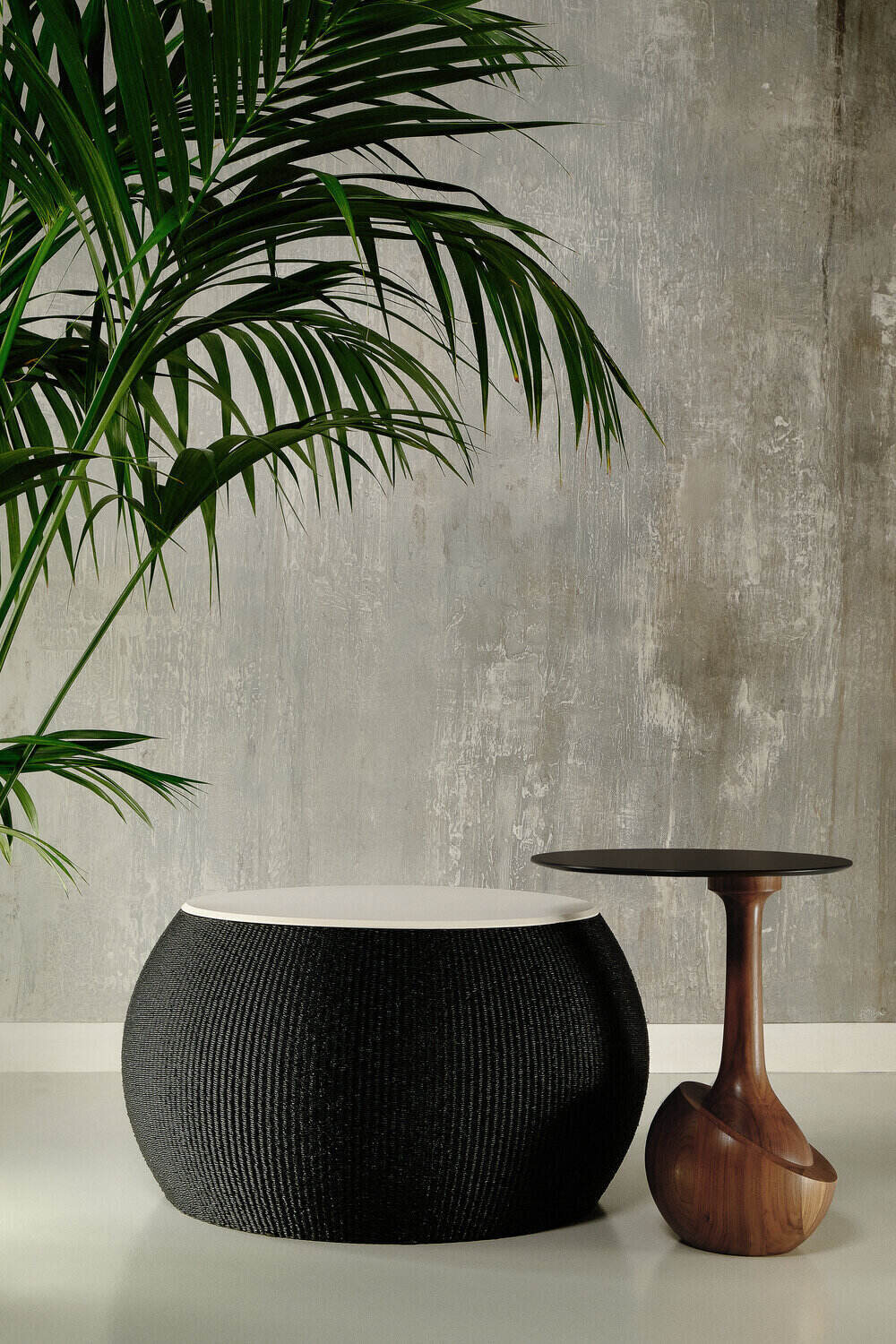
Elli describes the Zero collection as representing nothing—negation in the face of superfluous detail
The objective here is Zero waste in production, Zero as a reference to the circular movement of the robot, Zero as a reference to the circular economy, Zero as a reference to the non-use of virgin raw material and Zero as a reduction of the environmental impact at the end of its life thanks to the Made & Remade option.
“Sustainability is not only aimed at the sphere of the environmental impact of production and a product,” says Elli, of the brand’s promise to keep working within this sector to promote green ideals.
“Sustainability embraces the moral and social duty of doing business today and in the future; around businesses the territory is enhanced, communities grow, culture is created and live as much as the company, as well as the “purpose”; knowledge, professions and progress, are enhanced, a process where sustainability and the circular economy are the engines.”
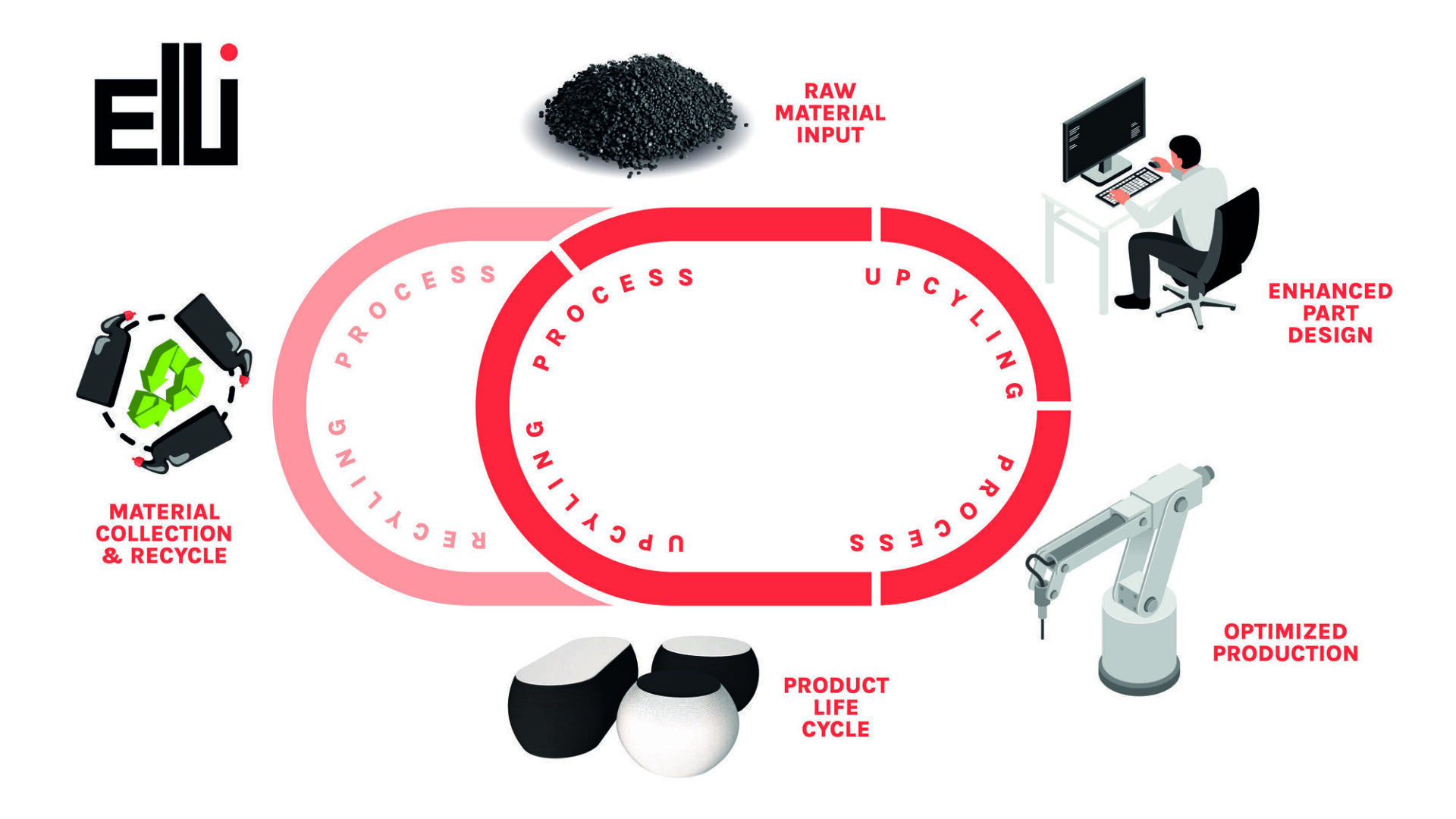
“The change, if we want to achieve climate neutrality by 2050, lies in the way of producing but above all in the change in the consumer model that has guided the world in the last thirty years: sustainability is so important to me because is the lever that will allow us to move from a “linear world” to a “circular world”, in which there will be new scales of values and priorities; utopianism? Maybe, but I strongly believe in it.”










